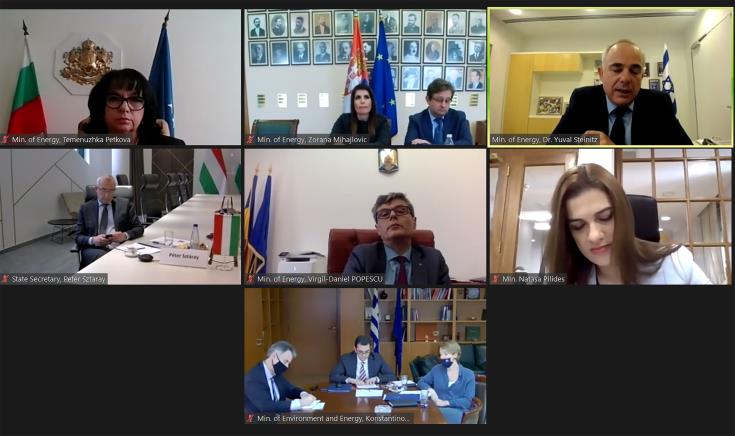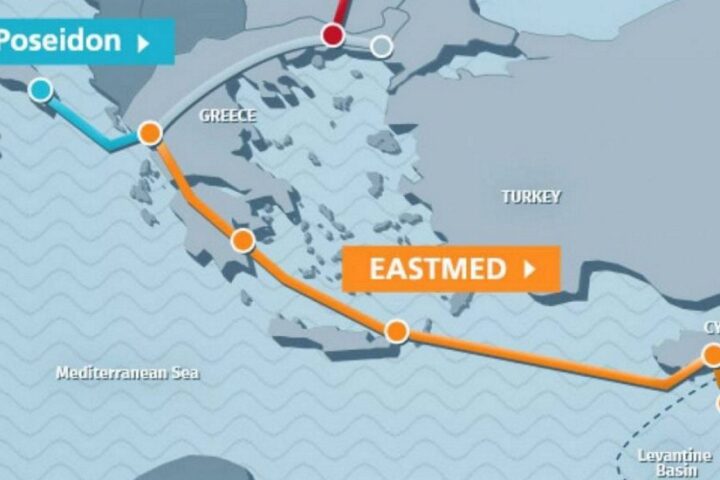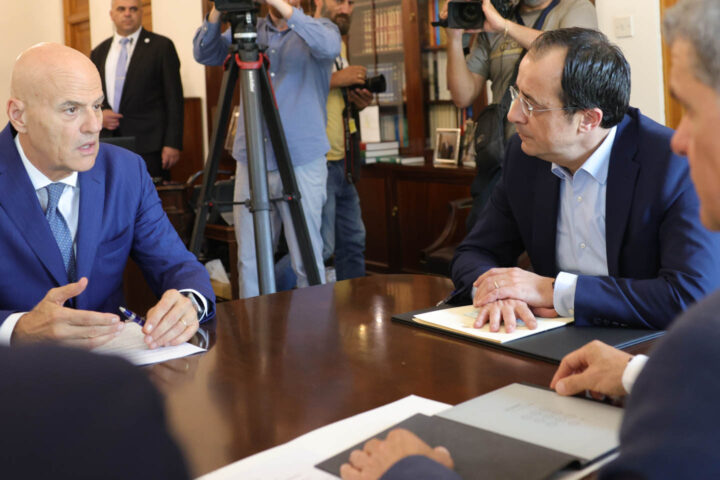Bulgaria, Hungary, and Serbia have hailed the EastMed Agreement, an ambitious plan to build a €7 bln pipeline from Cyprus to mainland Europe, as they expect to benefit from the transfer of natural gas.
During a teleconference on Thursday with Energy Ministers of Bulgaria, Hungary, and Serbia and their Cypriot, Greek and Israeli counterparts, the six ministers expressed their support to the project in a joint statement.
The conference was the initiative of Israeli Energy Minister Yuval Steinitz to enhance cooperation and explore opportunities of the EastMed Gas Pipeline.
In the joint statement, the Ministers “recognize the importance of natural gas as a crucial ‘bridge fuel’ that will facilitate long-term energy transition towards a dramatic reduction of their carbon footprint”.
“Enhancing the security of natural gas supply to South-eastern and Central Europe can be guaranteed through the diversification of alternative supply sources and routes.
“This project represents a viable and strategic option for increasing the security of gas supply for the regions of South-eastern Europe, Central Europe, and the Central Mediterranean including Italy.”
To maximize the benefit of cooperation, the Ministers also discussed the best ways to foster collective activities and collaboration in the areas of renewable energy, fuel alternatives, encouraging innovation and joint pilot projects.
They agreed to convene another Ministerial Meeting soon to discuss tangible ways of operationalizing their cooperation and set up an ad hoc working group of experts to offer technical assistance.
Bulgaria’s Energy Minister Temenuzhka Petkova said: “Future gas supplies from the Eastern Mediterranean will make a significant contribution to diversification and price competition not only in Bulgaria but also in Southeast Europe”.
Cyprus Minister of Energy Natasa Pilides presented strategic goals in the fields of hydrocarbons, renewable energy sources and energy-saving.
She said to gradually transition to green energy, Cyprus has a national action plan for energy and climate-specific policies including support programmes until 2027 worth €180 mln.
“Cyprus is also working to lift soon its energy isolation, through EU common interest programmes, such as the EastMed gas pipeline, and the electricity interconnection cable connecting the grids of Israel, Cyprus and Greece, better known as EuroAsia Interconnector,” said Pilides.
The EastMed project has already secured €35 mln in EU funding for four studies that are ready to be tendered.
The pipeline is expected to carry 9 to 12 billion cubic metres of natural gas a year from offshore reserves held by Israel and Cyprus to Greece, and then on to Italy and other south-eastern European countries.
Meanwhile, the House on Thursday ratified the East Mediterranean Gas Forum (EMGF) statute which enhances Cyprus’ geopolitical status in the region while facilitating the exploitation of the Eastern Mediterranean’s natural gas resources.
The Cairo-based EMGF was established by seven founding states, Egypt, Cyprus, Greece, Israel, Italy, Jordan, and Palestinian Authority aiming to unlock gas resource potential in the region and to monetizing their reserves.
Palestine, Egypt, Israel, and Jordan have already ratified the law while Greece and Italy are expected to proceed soon.
Furthermore, the EU, the United States, the United Arab Emirates and Russia, have expressed keen interest to obtain observer status while France seeks to become a full member.










